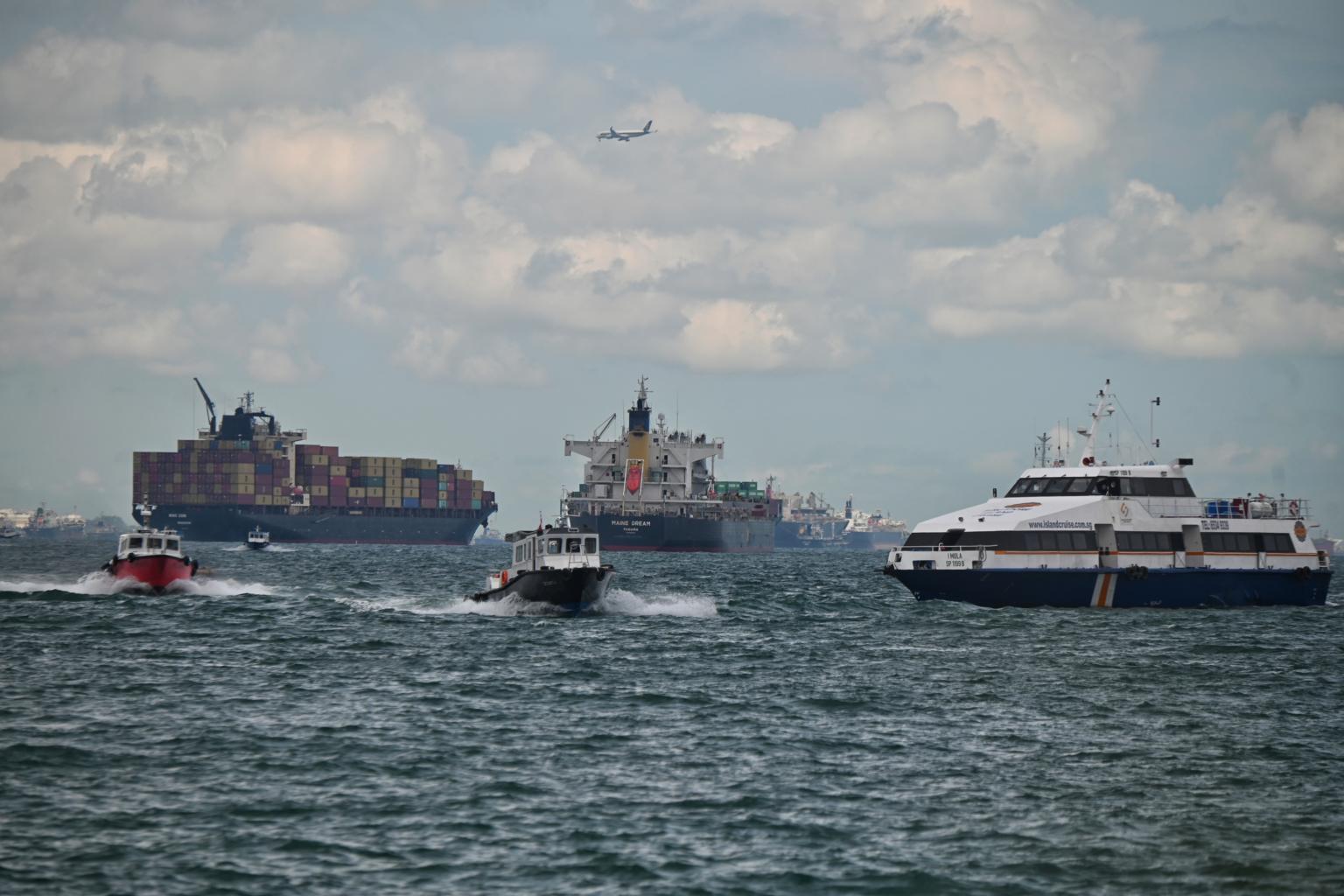Piracy, sea robberies in the Singapore Strait on the rise: Anti-piracy group
Sign up now: Get ST's newsletters delivered to your inbox

The Singapore Strait recorded 17 cases of sea robberies between January and March this year.
ST PHOTO: KUA CHEE SIONG
Follow topic:
SINGAPORE - Cases of piracy and sea robberies among trading ships and oil tankers have been on the rise in major shipping lanes near Singapore, which have been flagged as areas of concern by sea crime watch group Recaap.
The Singapore Strait, which is one of the world's busiest shipping lanes, recorded 17 cases of sea robberies between January and March this year - more than double that of the same period in 2021.
The increase was likely due to the economic impact of Covid-19, which may have led people to resort to crime on the high seas, said Recaap Information Sharing Centre (ISC) assistant director of research Lee Yin Mui on Tuesday (April 5).
Piracy and armed robbery cases in the Singapore Strait hit a six-year high in 2021 when 49 incidents were reported.
Ms Lee was speaking at the Piracy and Sea Robbery Conference conducted by Recaap, which is the Regional Cooperation Agreement on Combating Piracy and Armed Robbery against Ships in Asia.
These incidents were relatively low between 2016 and 2019, but reports of sea robberies and piracy started to climb in 2020.
According to the official definition, piracy refers to attacks in international waters, while armed robbery refers to attacks within a state's territorial waters.
She said to some 150 audience members who attended online: "The pandemic has also made enforcement more challenging, which is why there must be greater cooperation during this time."
Ms Lee said perpetrators were armed with knives in six of the cases in the Singapore Strait. She added that no crew were harmed in any of the incidents, which involved mainly tankers and carriers.
Items stolen included engine parts and welding equipment, though some left empty-handed.

There were no serious incidents, such as cases that involved guns or resulted in serious injuries, among the 17 incidents reported, Ms Lee added.
She urged nearby states to increase patrols and share surveillance findings with their neighbours as part of a collective effort to fight sea crimes.
The Malacca Strait was also flagged as an area of concern by the secretary-general of the International Maritime Organisation, Mr Kitack Lim, in his keynote address, with 69 cases of piracy and robbery reported last year, compared with 48 in 2020.
In his presentation on safety measures against piracy and sea robberies, general manager of the tanker management team of HMM Ocean Service Joo Sung-kuk urged shipping companies to have a security plan before their ships enter areas prone to sea crimes.
He advised shipping companies to monitor piracy-related websites and to report incidents and findings to Recaap and other databases promptly.
Ship masters should also brief the crew and conduct drills to prepare for emergencies, he said.
Vessels should be designed with multiple layers of defence, including hardened doors, gates and comprehensive surveillance camera coverage and communications, said Mr Joo.
He recommended that Singapore, Malaysia and Indonesia strengthen cooperation over maritime security to tackle the problem.
Recaap ISC executive director Krishnaswamy Natarajan said the fight against sea crimes against ships is a shared responsibility and that cooperation among countries surrounding the Singapore Strait is key to reducing piracy and sea robbery.
When asked about the possibility that sea robberies were being over-reported, Ms Lee said Recaap does its part to verify with sources such as the ship master.
Although many cases were considered "petty thefts", the situation could get worse if it is not dealt with, she added.
Said Ms Lee: "If it is unreported, perpetrators could become bolder over time. Even if nothing is stolen, it is one incident too many."

